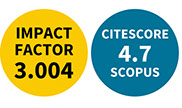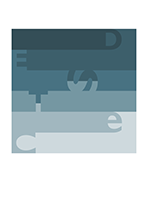FEMTI
2021
PISA
The conference is over. Please download the conference proceedings of the 1st edition.
See you at the next edition !
Proceedings
Scroll down to have a look on the first edition!
Frontiers of Energy Management and Technology Innovation 2021
FREE CONFERENCE - 16/17th December 2021
Held by the PhD course of DESTeC Department
University of Pisa
FIRST EDITION - ONLINE
Have a look on the first edition!
To take part in the conference as a presenter, please upload an extended abstract (max. 20Mb) through the form. Please comply with the template provided to simplify the revision procedure for the conference committee. You can find additional instruction to prepare the paper at the link: for any further information please contact the organizers through the email at the bottom of the website. Selected papers will receive a 50% voucher for publication on the dedicated Special Issue. To take part to the conference as an auditor, please follow the link below.
Download Template
Upload Extended Abstract
CONFERENCE PROGRAMME
The first edition of the FEMTI 2021 Conference "Frontiers of Energy Management and Technology Innovation" will be helded from 16th to 1th of December 2021 exclusively online. The conference is funded by University of Pisa and hosted by the PhD course of the Department of Energy, Sistem, Land and Construction (DESTeC) of the School of Engineering of Pisa. Partecipation to the event is open and free: the conference is designed for PhD students in the field of energy management and building physics. Selected papers by the scientific commitee of the conference will be invited to publication on a reserved Special Issue with publication vouchers.
In the last decades, the awareness of sustainability and the need for reducing energy consumptions has become increasingly relevant, due to the necessity to provide solutions to relevant issues such as anthropogenically induced climate change. In this scenario, both civil and industrial sectors play a key role in defining the strategies that are decisive to provide solutions to such problems.
Furthermore, in accordance with the concerns of energy management, the increasing time that people are spending indoors led to the need for providing safe and healthy indoor environments, also in relation to the pandemic and post-pandemic situation. In this direction, Indoor Environmental Quality (IEQ) is getting wide recognition by cutting-edge research as the element to combine energy efficiency, savings, and wellbeing. To highlight the major innovation in this field, the conference topics, thus those of the special issue will focus on:
• Building performance and efficiency measures
• Renewable Energy System
• Industrial systems and energy management
• Indoor Environmental Quality
• Building Energy Simulation
• Local and global thermal comfort
• Personal Comfort systems
CONFERENCE TOPICS
Building
Energy
Management
IEQ
Building
Energy
Simulation
(BES)
Building
Performance
PCS
Thermal control
Industrial systems
Thermal comfort
GUESTS & KEY LECTURES
Prof. Dr.
Marco Ivaldi, Ph.D.
University of Turin
Fifth Keynote: 16/12 17.15-18.30
Marco Ivaldi obtained his PhD in Complex Systems in Medicine and Life Sciences on medical physiopathology, honoured by the Royal University of Turin for his dissertation: Prediction of sports injuries through psychological testing. He is a professor in Neurophysiology of Movement, Methodology of Human Movement, Bases of Human Movement, Techniques of Sports and physiology in relation to the presence of pollutants and in extreme situations.
His research focuses also on quantitative electroencephalographic analysis, movement-related neuroscience, and neuromarketing at the University of Turin.
He is co-founder of we-sport.com, a major sports social network, and is currently founder and vice-president of aGrisù Srl, an academic spin-off focused on creating tools for monitoring human uptake of air pollutants, including those related to sport.
Prof. Dr.
M. Pinar Mengüç, Ph.D.
Center for Energy, Environment and Economy
Ozyegin University
Third Keynote: 16/12 12.00-13.15
Director of the Center for Energy, Environment and Economy (CEEE) and head of Mechanical Engineering Department. M. Pinar Mengüç, after graduating from Ankara Science High School, received his BS and MS degrees from ODTU/METU in Ankara, Turkey, and his PhD from Purdue University, USA in 1985. He joined to the University of Kentucky and promoted to the ranks of associate professor and professor in 1988 and 1993, respectively, and eventually selected as the Engineering Alumni Association Chair Professor in 2008. He was a visiting professor at Università degli Studi di Napoli Federico II, Italy during 1991 and at Harvard University, Cambridge, Massachusetts.
He joined Özyeğin University, Istanbul in 2009 as the founding Head of Mechanical Engineering. The same year, he established the Centre for Energy, Environment and Economy. Mengüç’s research areas include radiative transfer, nanoscale transport phenomena, applied optics and sustainable energy applications. His research programs have been funded by more than 60 grants from several agencies in the US, in Europe and in Turkey. Over the years, he has guided more than 70 MS and PhD students, and post-docs researchers. He is the author/co-author of more than 150 archival papers, 220 conference publications, four books, and several book chapters. He holds six patents, including a triadic patent.
Seventh Keynote: 17/12 16.45-18.00
In the 1960s, Fergus Nicol researched building physics and human thermal comfort at the Building Research Establishment. He taught at the Schools of Architecture at the University of Science and Technology in Kumasi, Ghana, and the Architectural Association in London. Fergus is best known for his work in human thermal comfort, principally the 'adaptive' approach. He led the EU project Smart Controls and Thermal Comfort which is the basis of European comfort standard EN15251. He has been co-editor of the guidance on thermal comfort in CIBSE Guide A.
Fergus helped develop Masters courses on sustainability at Oxford Brookes and London Metropolitan Universities. Fergus convenes the Network for Comfort and Energy Use in Buildings. Fergus’ research interests are human comfort and discomfort in buildings, principally thermal comfort, energy efficiency and the relationship between the two. The implications of energy use and comfort for climate change and the effect of climate change on energy use and comfort. The ways in which the design of cities and buildings needs to adapt to allow for the effects of climate change.
Prof. Dr. Fergus Nicol, Ph.D.
London Metropolitan University
Prof. Dr. Rajan Rawal, Ph.D.
Centre for Advanced Research in Building Science and Energy
First Keynote: 16/12 09.30-10.45
Rajan Rawal is a CRDF Professor at CEPT University and Senior Adviser at “Centre for Advanced Studies in Building Science and Energy” (CARBSE) at CEPT Research and Development Foundation (CRDF). He teaches energy-efficient built habitat, energy modelling, energy policy at the postgraduate level. His work emphasis is on ‘Energy Performance of Human Habitat’ and ‘Architectural and Building Science Education’. His current focus of the work is on Climate responsive and Passive building design Strategies, Net Zero Energy Buildings and Communities, Personal Thermal Comfort Systems and Practices of Adaptive Thermal Comfort Models.
Prof. Rawal led Indo-US Joint Clean Energy R&D Centre - Building Energy Efficiency Sector. He is an active member of the International Energy Agency’s various EBC Annexes and Chair Education at the International Building Performance Association (IBPSA). Prof Rajan Rawal has made remarkable contributions in the field of Energy Efficient building design and operation, passive design strategies, HVAC, occupant thermal comfort and Personal Thermal Comfort Systems. His contribution to the development of thermal comfort standards in India hugely impacted educational programs within the university and at the national level.
Prof. Dr. Manoj Kumar
Singh, Ph.D.
University of Ljubljana
Second Keynote: 16/12 10.45-12.00
Dr. Manoj Kumar Singh did his M.Tech. in Energy Technology from Tezpur University and Ph.D. in BioClimatic Building Design from the Indian Institute of Technology. His research interests are in the area of Thermal Comfort, Bioclimatic Building Design, and Sustainability, Building Energy Simulation, Energy Performance of Building Envelopes. His research on thermal comfort is included in ASHRAE Standard-55 2017. He is the recipient of the Ministry of New and Renewable Energy Fellowship, Belgium, and JSPS Postdoctoral Fellowship.
He has worked with Prof. Richard de Dear, University of Sydney, Prof. Jacques Teller, University of Liege, Belgium, Prof. R. Ooka, The University of Tokyo, Japan, and Prof. H. B. Rijal, Tokyo City University, Japan. He has more than 70 scientific publications in reputed international journals and conferences, with an h index of 21. He is also Guest Editor of special issues of Sustainability and Energies journal and Review Editor of Frontiers in Mechanical Engineering, Frontiers in Built Environment, and Frontiers in Energy Research Journals.
Prof. Dr. Jørn Toftum, Ph.D.
Department of Civil Engineering
Technical University of Denmark DTU
Sixth Keynote: 17/12 15.30-16.45
Jørn Toftum is a professor in ventilation at the Technical University of Denmark. His research covers mainly the interaction between the indoor environment in buildings and human comfort, health and performance. This has involved numerous laboratory studies and comprehensive surveys in Danish daycare centres, schools, offices and dwellings to describe associations between indoor environment exposures and people's responses.
Recent activities focus on systems and methods for monitoring and control of building operation, occupant behavior, energy consumption, and indoor environment and on tools quantifying the wider benefits of improved indoor environment in schools, dwellings and offices.
Jørn Toftum holds a Ph.D. from DTU and has been a visiting researcher at UC Berkeley and at Tsinghua University.
Prof. Dr.
Andreas Wagner, Ph.D.
Institute for Building Design and Technology
Karlsruhe Institute of Technology KIT
Fourth Keynote: 16/12 14.45-16.00
Andreas Wagner, studied mechanical engineering at the University of Karlsruhe before he worked as a researcher at the Fraunhofer Institute for Solar Energy Systems in Freiburg for 8 years. Since 1995, he is a Full Professor at the Karlsruhe Institute of Technology (KIT), and head of the Building Science Group in the Department of Architecture. Besides teaching bachelor and master courses his research focuses on monitoring and analysis of building energy performance, solar-based integrated energy concepts as well as on comfort and occupant behaviour at workplaces.
Andreas Wagner has coordinated numerous third-party-funded national and international research projects over the last 25 years. He has (co-)supervised and examined 32 PhD Theses and was external examiner of 16 PhD Theses at other Universities. He is (co-)author of more than 150 publications and he also (co-) edited /wrote 6 scientific books. He was dean of the KIT-Department of Architecture twice and is currently vice-dean for research of the Department. Since 2018, he is Co-Operating Agent of the IEA EBC Annex 79 on ‘Occupant-Centric Building Design and Operation’.
Prof. Dr. Hui Zhang, Ph.D.
Center for the Built Environment
UC Berkeley
Eighth Keynote: 17/12 18.00-19.15
Prof. Hui Zhang is a professional researcher at the Center for the Built Environment at UC Berkeley. Her work focuses on human thermophysiology and thermal comfort to support the development of energy-efficient and individually controlled heating and cooling systems for buildings. Dr. Zhang has developed a body part specific model of human comfort for the evaluation of complex thermal environments and holds several patents for personal comfort systems. She has run many laboratory and field studies evaluating a wide range of topics.
Her knowledge ranges from fundamental physiology to the comfort and energy effectiveness of innovative building practices. Dr. Zhang holds a PhD in building science from the Department of Architecture at UC Berkeley (2003) and a M.S in Architecture (1986) and B.A. in Engineering (1983) from Tsinghua University, Beijing, China. She received the ASHRAE Ralph Nevins Physiology and Human Environment Award for her PhD dissertation study, "Local Thermal Comfort in Asymmetrical and Transient Environments."
* schedule is intended at Rome GMT+1
PUBLICATION

an Open Access Journal by MDPI

Selected Papers from Frontiers of Energy Management and
Technology Innovation: Towards Zero Emissions (FEMTI 2021)
Guest Editors
Prof. Dr. Fabio Fantozzi, Dr. Marco Picco
Assistant Editors
Eng. Giacomo Cillari, Eng. Giulia Lamberti, Eng. Roberto Rugani
Deadline
30 April 2022
50% discount available for selected papers
Download flyer
Link
CONTACTS
Eng. Roberto Rugani roberto.rugani@phd.unipi.it Eng. Giacomo Cillari giacomo.cillari@phd.unipi.it Eng. Giulia Lamberti giulia.lamberti@phd.unipi.it
